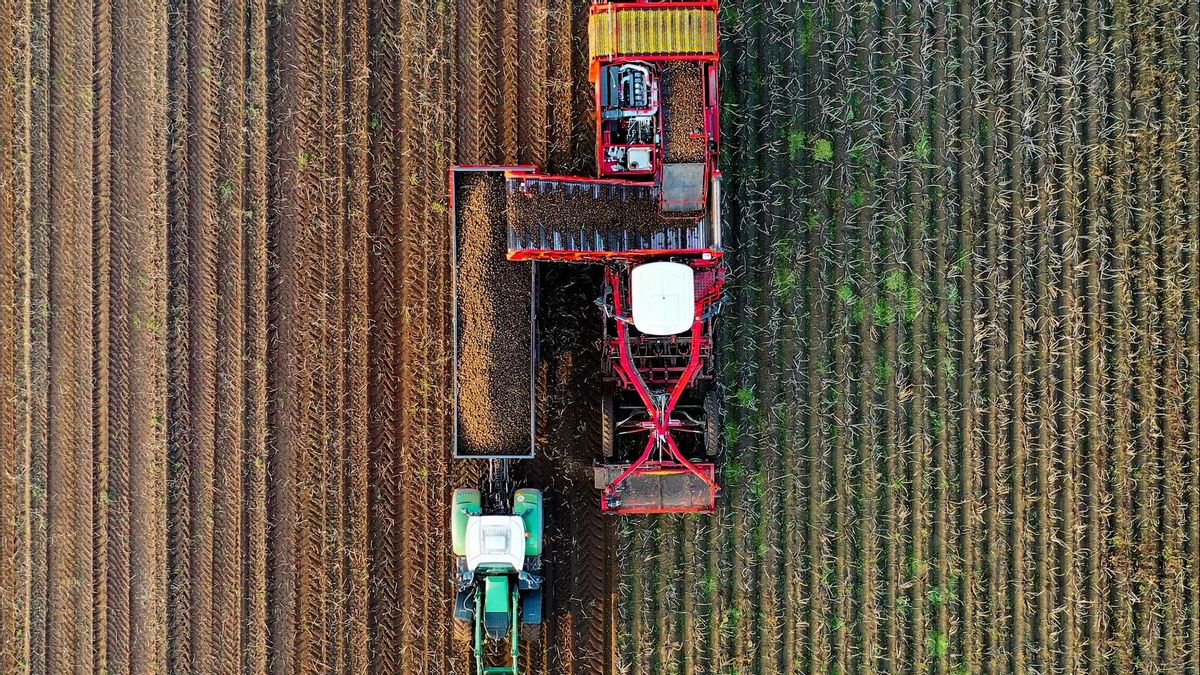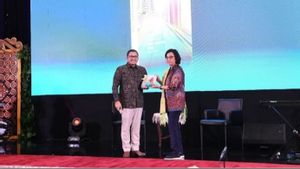JAKARTA - The Center for Indonesian Policy Studies (CIPS) said investment and mechanization in the agricultural sector helped overcome the challenges of fulfilling Indonesian food, which need to be taken seriously in line with the increasing trend of consumption.
Domestic food production is unlikely to follow an increasing trend of consumption. International trade needs to be maximized to provide supplies to meet demand, "CIPS Head of Agriculture Research Aditya Alta said in an official statement, quoted from Antara, Monday, July 10.
He continued, economic growth and poverty reduction efforts will not have a significant impact on overcoming food insecurity if food is not available. Furthermore, the lack of food supply can also have an impact on nutritional problems.
Currently, Indonesia is facing the challenge of food demand which is projected to not be met by domestic food production.
From 2018 to 2021, the demand for rice, corn, wheat flour, and national soybeans has gradually increased in Indonesia, with an estimated annual average growth of almost 300,000 tons of rice, 16,000 tons of corn, 26,000 tons of wheat flour, and around 144 tons of soybeans.
The latest CIPS research projects that food demand until 2045 in 20 districts with the highest poverty rate in Indonesia is still below the standard daily calorie intake for carbohydrate sources such as rice, corn, and wheat flour.
This is despite the number of requests for rice, corn, and wheat flour in these 20 districts which are projected to increase every year by 1.2 percent (rice), 1.27 percent (aGO), and 6.24 percent (a monument).
If the food supply in these districts is not fulfilled, then the 2045 Indonesia Vision to create quality human resources through healthy consumption patterns will be difficult to achieve, especially in areas with high poverty levels.
Aditya believes that this projection shows a serious impact if Indonesia fails to ensure the availability of staple foods such as rice, corn, and flour in the poorest areas.
Therefore, a holistic approach must be taken with four policy changes. First, the projected food demand that increases in the future can be met through a significant increase in productivity by ensuring a more equitable adoption of agricultural technology.
另请阅读:
Second, increasing targets and sustainability aspects of equipment, machinery, and other innovations in agriculture, such as new superior varieties by the government. The government also needs to evaluate its programs to avoid duplication and increase sustainability with private initiatives and the community.
The third policy change is to maximize the role of international trade in achieving food security. The application of various non-tariff barriers such as quotas and import recommendations needs to be evaluated to see the impact on food security.
"Humanships that increase costs and hinder access to nutritious and balanced food for low-income consumers need to be minimized," he added.
The last step, he said, is that the government must cooperate with the private sector to carry out this reform. Food and agriculture are complicated sectors and a holistic approach to improvement requires cooperation from all stakeholders, both government and private.
The English, Chinese, Japanese, Arabic, and French versions are automatically generated by the AI. So there may still be inaccuracies in translating, please always see Indonesian as our main language. (system supported by DigitalSiber.id)












